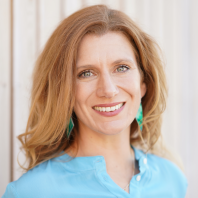Women’s economic empowerment refers to a process by which women expand their ability to succeed and advance economically, and where they have the power to make and act on strategic life decisions in a context where this power was previously denied to them.
Established in 2014, the Women’s Economic Empowerment Working Group (WEE WG) curates technical resources, sources information for state of practice reports, works collaboratively to develop new learning products, and hosts online discussions, webinars and learning events. Members benefit from peer-to-peer support and opportunities to strengthen alliances and shared commitments.
2021 Technical Priorities
The WEE WG will focus on seven key technical priorities in 2021, showcasing learning through webinars, blogs and more:
New Resource Compendium on Intersectionality!
Research to date clearly suggests that women around the world are disproportionately impacted by COVID-19. They are losing their jobs at higher rates than men, experiencing increased care burdens and domestic violence, and struggling to maintain their businesses. Further, the overlay of other identities including race, disability, sexual orientation, age, socio-economic status, geography, migration status and other pre-existing structural inequalities and conditions intensifies the impact of COVID-19. This Resource Compendium highlights how the COVID-19 pandemic has exposed disproportionate vulnerabilities of diverse groups and why an intersectional approach to pandemic response efforts within international development is critical.
Learning Brief on Measuring Women’s Agency
Traditionally, most economic development programs aim to achieve economic advancement as measured by increased per capita income. However, there is increasing interest from programs to better understand, measure and capture agency across interventions in order to more deliberately pursue women’s economic empowerment. Yet, integrating agency in program planning and design – and specifically measuring its impact – poses many challenges. Led by working group Steering Committee members from Oxfam, PRISMA, and Women for Women International, this brief shares Practical Tools and Frameworks for Measuring Agency in Women’s Economic Empowerment.
| The SEEP WEE Working Group
The impacts of COVID-19 have been felt everywhere, with no country spared. Yet, they have not been felt the same way by everyone. While women are losing their jobs at higher rates than men, e…
| The SEEP Network
Questions & Answers The Women’s Economic Empowerment (WEE) Working Group and FinEquity were delighted to cohost a 90-minute virtual roundtable discussion on COVID-19 and Women&rsquo…
Bobbi Gray
Grameen Foundation
Chloe Bass
World Vision International
Emily Schaub
International Center for Research on Women (ICRW)
Eva Noble
Women for Women International
Friederike Strub & Felicity Butler
MarketShare Associates
Grace Majara
CARE International
Jennifer Denomy
MEDA
Jennifer Hansel
USAID
Jose Etchegoyan
International Finance Corporation (IFC)
Julia Hakspiel
Independent Consultant
Kaitlin Love
Ipsos
Mansi Anand & Aissa Boodhoo
Oxfam
Maryam Piracha
PRISMA
Mridulya Narasimhan
LEAD at Krea University
Ruairidh Waddell
World Renew
Wade Channell
Independent Consultant

Felicity Butler, Senior Specialist in Gender and Social Inclusion
MarketShare Associates
Felicity is a social scientist with over 20 years’ experience and specializes in gender and social inclusion. She contributes to MarketShare Associates' gender agenda and brings unique expertise in ethical trade, sustainability and innovation in agricultural value chains.
Before joining MSA, Felicity served as Programme Manager for Divine Chocolate and Twin and Twin Trading and led farmer-led development programmes in Ghana, Sierra Leone, São Tomé and Malawi. Prior to this she spent seven years conducting qualitative and participatory research with farming communities in Nicaragua in collaboration with The Body Shop for her doctorate. Her PhD focused on an innovative pricing pilot on women’s unpaid work which has since had a direct impact on both policy and business practices in global organizations.
Felicity holds a PhD and Masters in Practising Sustainable Development from the school of Human Geography at Royal Holloway, University of London. She lives in East Sussex in the United Kingdom, has lived and worked in Nicaragua and spent time working in Bolivia, Brazil, Chile, El Salvador, Peru, Ghana, Malawi, Sierra Leone, São Tomé and Príncipe, Uganda and India. Felicity is fluent in both English and Spanish.

1621 North Kent Street, Ste 900,
Arlington, VA, 22209
P 202.534.1400
F 703.276.1433
Website Photos: © mari matsuri

